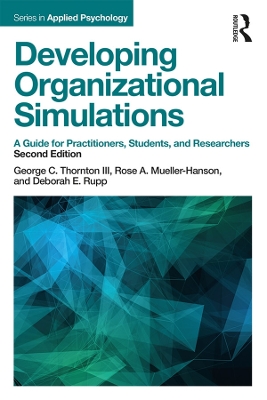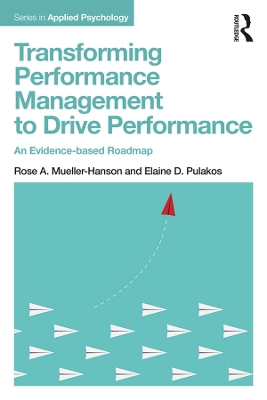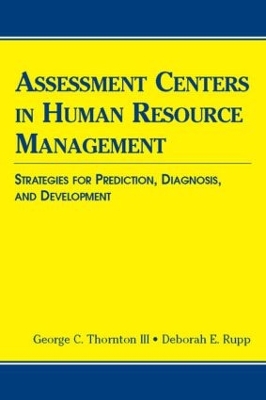Applied Psychology
3 total works
Developing Organizational Simulations
by George C. Thornton III, Rose A. Mueller-Hanson, and Deborah E. Rupp
This second edition of Developing Organizational Simulations provides a concise source of information on effective and practical methods for constructing simulation exercises for the assessment of psychological characteristics relevant to effectiveness in work organizations. Incorporating new additions such as the multiple ways technology can be used in the design, delivery, scoring, and evaluating of simulation exercises, as well as the delivery of feedback based on the results, this book is user-friendly with practical how-to guidance, including many graphics, boxes, and examples. This book is ideal for practitioners, consultants, HR specialists, students, and researchers in need of guidance developing organizational simulations for personnel selection, promotion, diagnosis, training, or research. It is also suited for courses, workshops, and training programs in testing and measurement, personnel selection, training and development, and research methodology.
Transforming Performance Management to Drive Performance
by Rose A. Mueller-Hanson and Elaine D. Pulakos
Recently a revolution has taken place in organizations around the world to transform their performance management systems from burdensome chores into a valuable business practices. Many high-profile companies have announced they are getting rid of the dreaded performance reviews and replacing them with ongoing coaching and feedback. Although these cases are inspiring other organizations to contemplate change, many are left with more questions than answers.
While many fads and quick fixes have been proposed to answer these questions, little research exists to support them. This book provides a practical and evidence-based guide for building a performance management approach that actually improves performance. It cuts through the hype and gives actionable advice, useful tools, and real-world examples for organizations to build the business case for change, plan the transformation, design the new system, and implement the change effectively. Featuring research findings as well as concrete strategies from organizations that have proven successful, this book provides a roadmap for meaningful change. It will be of interest to professionals and scholars interested in evidence-based performance management and the challenges facing organizations.
Assessment Centers in Human Resource Management
by George C. Thornton and Deborah E. Rupp
The theme permeating this book on assessment centers is "continuity and change", describing what has remained the same and what has changed in the 50-year history of the assessment center method. One of the important changes explored is the evolution of the goals of assessment center programs and the ways in which assessment centers and their component parts have been used. Assessment Centers in Human Resource Management clearly differentiates between assessment centers used for prediction, diagnoses, and development.
In addition, this book explores:
- assessment centers and human resource management;
- court cases involving assessment centers;
- innovations in assessment center operations;
- cross-cultural considerations including diversity of the workforce; and
- assessor training.
The target audience for the text includes students who are learning about assessment centers, practitioners including human resource managers and consultants who may be considering the implementation of assessment centers, and academicians who are researching the method and wish to understand current issues.


